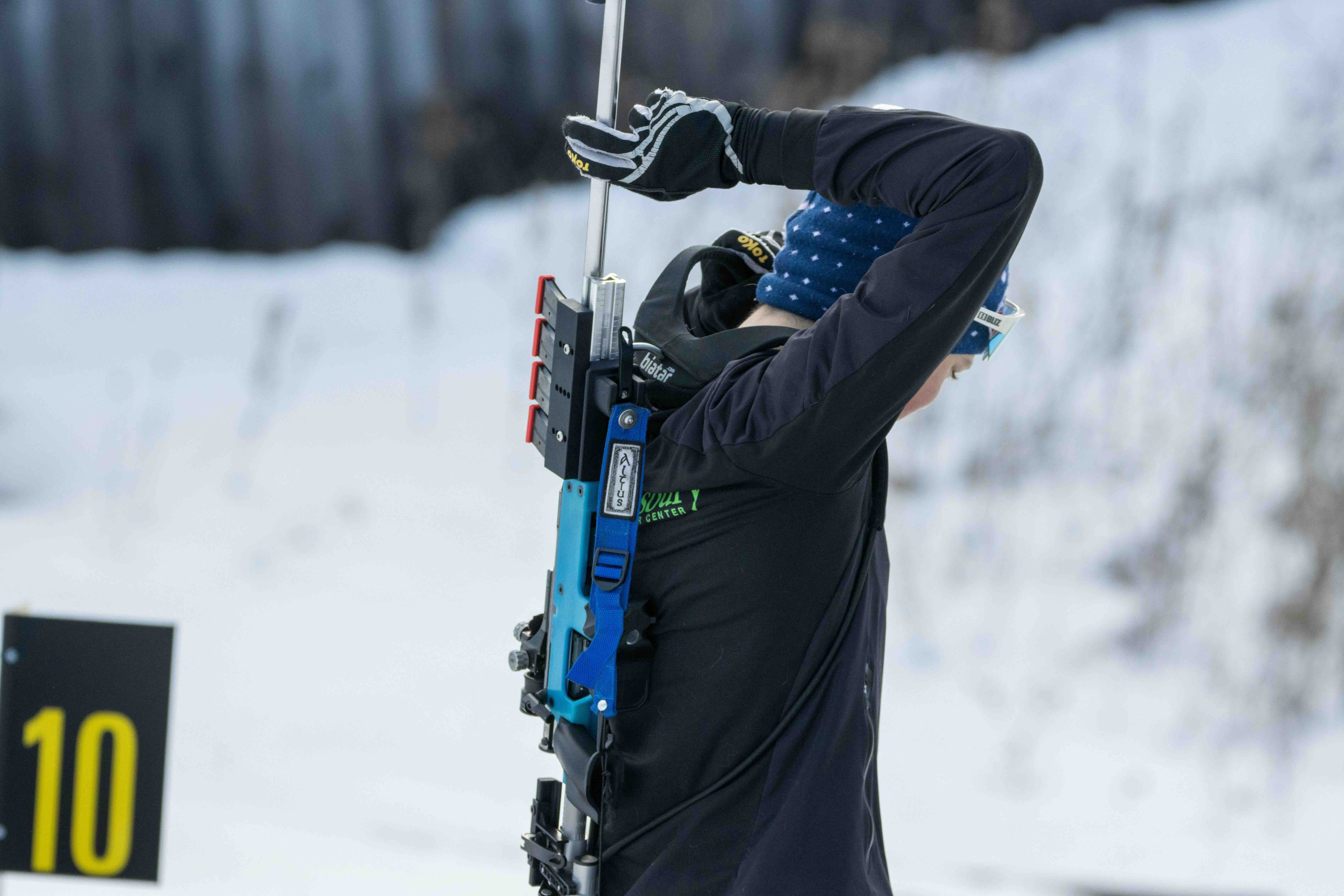-min.jpg)
The root of the word courage is cor – the Latin word for heart. In one of its earliest forms, the word courage had a very different definition than it does today. Courage originally meant "To speak one's mind by telling all one's heart."
Over time, this definition has changed, and today, courage is more synonymous with being heroic. Heroics is important and we certainly need heroes, but I think we've lost touch with the idea that speaking honestly and openly about who we are, about what we're feeling, and about our experiences (good and bad) is the definition of courage.
Heroics is often about putting our life on the line. Ordinary courage is about putting our vulnerability on the line. In today's world that's pretty extraordinary. — Brené Brown
In this piece, Kathryn adds a research lens from her background in mental health, while Michaela voices her survivor perspective.
Please be advised that this article includes adult language and content regarding sexual abuse and domestic violence that may not be suitable for all readers. Additionally, we each have our own unique experiences and expressions of emotions. You do not have to feel a certain way. There is no right or wrong regarding feeling or experiencing courage or any other emotion.
Disclaimer: Content and material in this post are for general informational purposes only. Seek out professional medical and mental health advice and support as needed. If you are in crisis, please visit our crisis resources page.
Michaela:
I experienced sexual violence and domestic violence as a teenager up into my 20s from multiple perpetrators. I carried these experiences alone for over a decade, making me adept at hiding my hurt, ignoring my feelings, and dissociating for the sake of survival. On the surface, I looked put together. I always had a job, received numerous scholarships, graduated top of my class as an undergraduate student, and earned a master's degree in my early 20s. Underneath the image that I had carefully curated for myself, I was in constant turmoil, drowning in anxiety and depression. I didn’t understand the concept of a trauma response, and I absorbed and held onto my hurts like a sponge.
I never let anyone in to help support me with these hurts; I never asked for help. I lived in a world of silence.
I was terrified to be vulnerable and to ask for help. I didn’t even know who I could ask for help. I felt alone. I held myself accountable for these horrible events and failed to understand that the only person responsible for abuse is the perpetrator. Slut. Whore. Liar. Just a glimpse of the words seared into my brain by society and those closest to me. Words that I held close to my core. The shame, sense of loss, and soul-shredding that I felt kept me paralyzed.
When I think about the 10 years I stayed silent about these hurts, I experienced every shade of anger, grief, despair, fear, and sadness. But I also discovered the many colors of courage.
Kathryn:
Courage is more than an emotion, mindset, or skill set. Most definitions synthesize the noun as a value or a way of being. Ubiquitous - the boldly following of one’s knowing despite external factors hallmarks courageous actions. Embodying courage means intentionally facing hard and risky things.
Research from behavioral psychology shows that our propensity or ease in being courageous is influenced by nature and nurture. Personality traits and societal conditions certainly sway our orientation to courage. Yet, it is a virtue we can all choose to demonstrate.
Courage comes from within us. A muscle we can strengthen. A force and energy that we can tap into. It takes strength and bravery to execute this choice to act, think, and emote courageously. And, courage looks different for us all; what may be courageous to one may not be to another.
Michaela:
Courage didn’t come naturally. In fact, I don’t think I recognized what courage was for a long time. In the moment, courage can feel awful. It can feel like your world is crumbling into pieces.
But within the shambles and debris, you’re able to find your footing. Courage isn’t a cure-all. But when I choose to embrace courage, my tears no longer stream into my ears; they fall down my cheeks because my world shifts and becomes upright. And when my world is upright, there is potential for joy, for healing, for personal expansion.
Kathryn:
Courage serves as fuel and as a noble partner during difficult times in our lives. Whether making a quick decision or beginning a long journey, courage nourishes the hero with grit and resolve. Courage acts as a change agent or catalyst driving us to act on our own volition for the greater good even when we will likely face hardship.
Courage can feel complex, but truly it is pure - the only progression that feels deeply right. This does not mean it is easy. On the inside, courage can feel exhausting, confusing, troublesome, mind-boggling, dreadful, slow, and taxing. On the outside, it may evoke reactions of applause, oohs and ahhs, gratitude, and remarkability; or, courage may be met with backlash, hate, misunderstanding, and fear. Or courage may go unnoticed, and wake a deafening silence, receiving no external recognition, praise, or credit. Courage is an inside job that takes the whole mind and body.
Sometimes it is easy to recognize others manifesting courage, and other times it is not. Either way, we never fully know someone’s internal experiences or the nuances of their situation. We do not have full awareness and insight into what it took for them to show courage. Perhaps we make assumptions about the obstacles they faced or the process. We may offer a platitude or a condolence. This may be well-intentioned, but it can come across as trivializing or belittling. Rather, we can invite empathy. We can offer respect and curiosity, imagining what it might have been like for someone else or asking about walking in their shoes… This could even inspire our courage.
Michaela:
When I think about what allowed me to make meaningful and lasting changes in my life, it comes down to courage. Courage is what pushed me to reach out to others, to ask for help, to advocate for myself, and to face seemingly insurmountable fear and instability.
Below are some ways courage has shown up differently for me and has positively changed my life.
Fully Leaning Into My Feelings –
For me, it takes courage to lean into the wake of emotions like grief, anger, and fear. It takes courage to make space for and welcome feelings that need room to stretch their legs, scream, sob, sit in silence, wallow, and be celebrated. But through this discomfort, I am healing. And that is a beautiful thing.
Relentless Pursuit Of Freedom —
I spent 10 years in an abusive relationship. It took a full commitment to courage to finally leave and not look back. To jump headfirst into the unknown. But I did it. I finally changed my life because I needed to be free, to live authentically. Courage held my hand as I made the brave (and terrifying) choice to choose myself and start a life that has space to be full of light, joy, and freedom.
Reclamation Of Space —
After getting sexually assaulted at a horse show and enduring abusive athletic environments, I felt like I was utterly stripped of my identity as an athlete and equestrian. Everything I loved, every dream I had, was violently ripped from me. I avoided barns, horse shows, and trainers. It took courage to step back into barns, venture back into horse shows, and hold my fear in a safe space, with accompanying resources. Courage allowed me to return to the equestrian space for myself so that I could serve a community I love.
Asking For Help —
I spent 10 years alone, in silence. Reaching out to others, starting to build a community for me, and asking for help was one of the hardest things I’ve ever done. I had to overcome the familiarity of isolation and accept that silence is not safety. Reaching out was uncomfortable, scary, and vulnerable, and it took immense courage. But as soon as I did, my whole world changed for the better.
Speaking The Truth —
Telling my story takes courage. Sometimes I get apprehensive that my words will be twisted or stomped on by others. But I know that my words are true, my experiences are real, and my story means something. Courage is what allows me to harness that sentiment and catalyze those feelings into meaningful change in my life, in my work, and in my interactions with others. Writing and posting this takes courage, and I hope that my words help someone else know they are not alone and can find courage, too.
Kathryn:
So how do you find courage? It starts with brutal, radical, and benevolent honesty. And this ‘getting honest with yourself’ may happen out of desire and will, or in times of desperation when your back is metaphorically or literally up against a wall, and it becomes the choiceless choice – where you have simply had enough. This is how courage connects to freedom, and breaking free from internal and external resistance to things we have avoided, gone along with, or accepted even though they do not align with or feel right in our mind, body, and soul.
This honesty with oneself, a moral inventory of sorts, is a breed of courage in its own right, vulnerably looking at what you have been protecting yourself from or have not been ready to face. The key here is embarking on this process with utter grace, kindness, compassion, and trust rather than any judgment, shame, or blame. You did what you needed to do in the past to survive, and now you are in a place to choose courage.
As we practice this courageous honesty, our resilience builds. Step by step. A long journey. We feel the feelings that are meant to be felt, and the visceral power of courage compounds. We naturally find admittance and embrace of the difficult truths, and the next right thing becomes clarified. As we hold hands with ourselves and harness courage, we notice our hearts and our worlds expand.
The secret to happiness is freedom... And the secret to freedom is courage. — Thucydides
For more on courage, visit:
Emotional Courage is the Key to Strengthening Mental Health
10 Features of a Courageous Choice
6 Ways to Find Your Courage During Challenging Times
Kathryn McClain, MSW, MBA
Program and Partnerships Director at #WeRideTogether
kmcclain@weridetogether.today
Michaela Callie, MBA
Executive Director at #WeRideTogether



.png)
